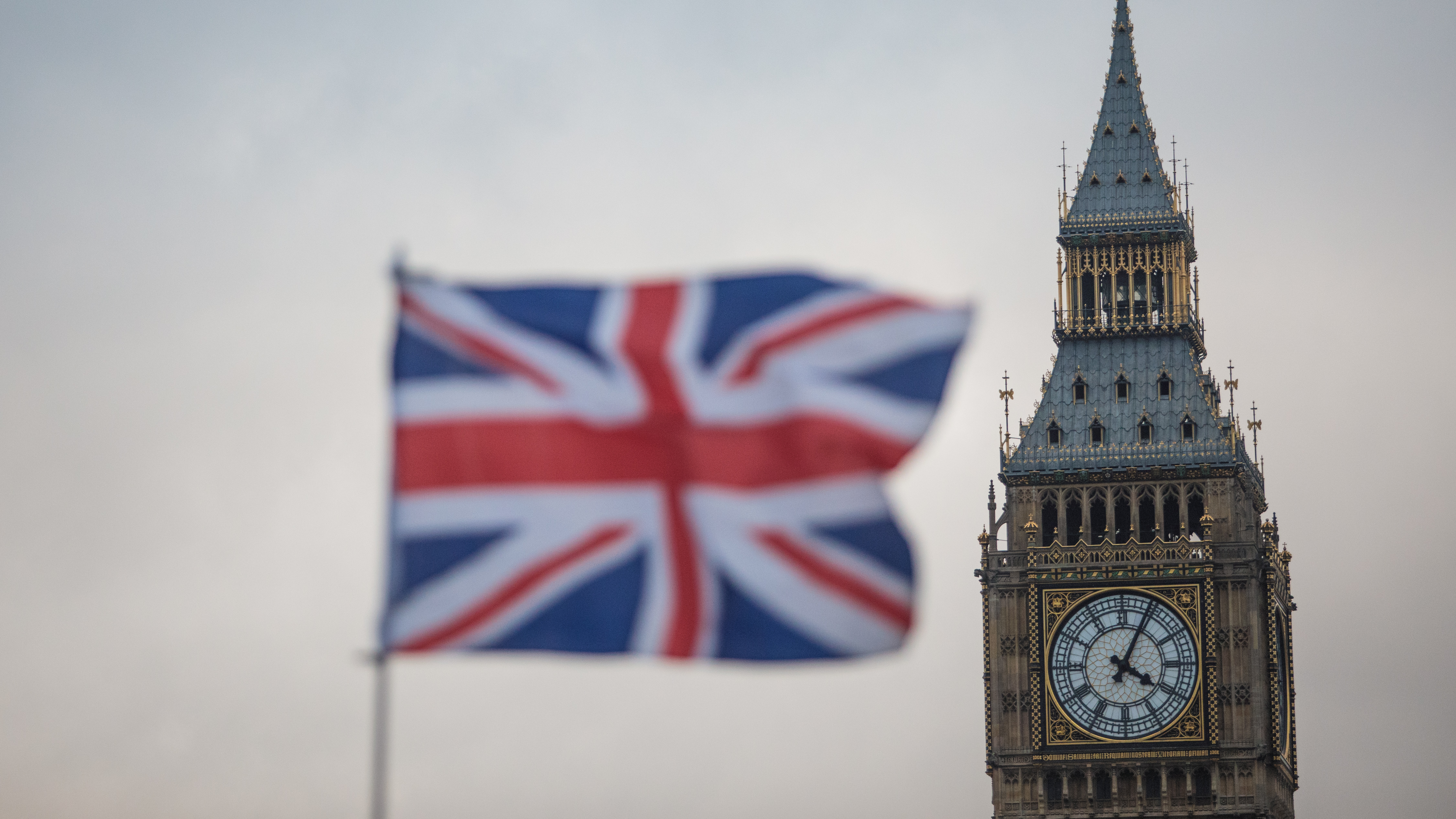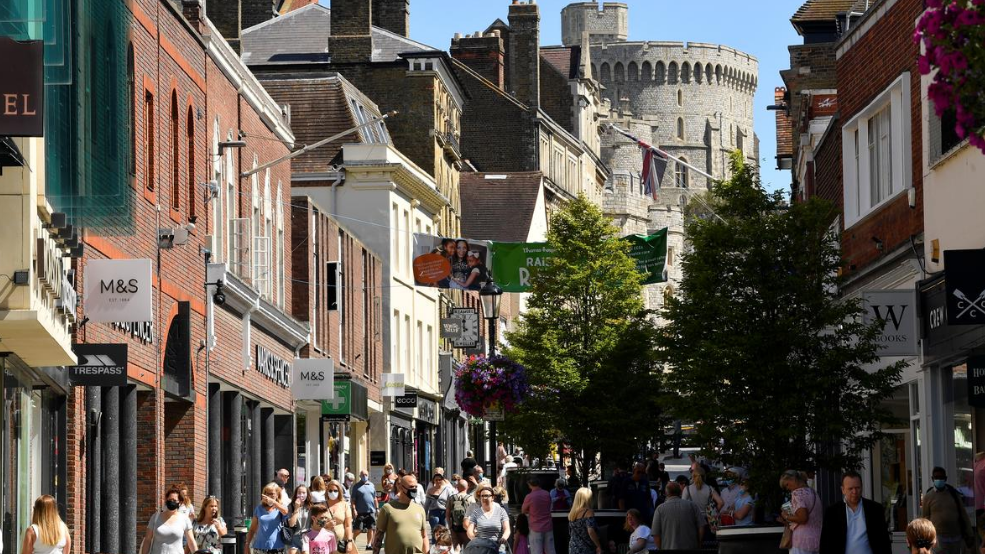
Editor's note: Freddie Reidy is a freelance writer based in London. He studied history and history of art at the University of Kent, Canterbury, specializing in Russian history and international politics. The article reflects the author's opinions, and not necessarily the views of CGTN.
As the main political parties in the United Kingdom enter their party conference season, the incumbent Conservative prime minister finds himself at the mercy of a "perfect storm" as political and geopolitical realities converge.
To those other than the party faithful, conferences are often a dull affair. Recent Labour party conferences may have seen the hard-line left fringe host its own events, frequented by celebrities and campaigners eager to drape themselves in the adornments of pious virtue but the rule is fairly constant.
Some would argue that Conservative party conferences have never been the same since image-conscious David Cameron's infamous "champagne ban." One event which did guarantee to electrify the otherwise stayed proceedings though, was Boris Johnson, who could always be relied upon to get the true-blue hearts beating to a more patriotic tune, undoubtedly Rule Britannia!
It would appear though, that this year Boris will need roll back the years and produce a vintage performance at a virtual conference.
The prime minister on Saturday declared Britain's "second wave" was upon the nation as more stringent measures have been put in place. Brexit negotiations have faltered again over arrangements for Northern Ireland. A trade deal with the U.S. seems as elusive as ever and for the first time Boris is facing ever more vocal discontent from his own party and the public at large.
Boris Johnson's political strength has always been in being an effective campaigner. As mayor, he was highly visible, cycling around central London, meeting Londoners and business owners as well as promoting London across the globe. A skillset which could have served a post-Brexit prime minister well but COVID-19 and legal wrangling over Brexit have confined the government to an incredibly narrow agenda, one which is being viewed with increasing skepticism.

People are seen on a retail street amid the spread of COVID-19 in Windsor, Britain, August 5, 2020. /Reuters
People are seen on a retail street amid the spread of COVID-19 in Windsor, Britain, August 5, 2020. /Reuters
On COVID, the government has always sought to demonstrate that policy is being "backed by science," thereby depoliticizing the issue. Early on, this appeared to work but as the fatalities rose and comparisons with other nation's response emerged, the government faced criticism.
The government find themselves in a position where the general public simultaneously feel they are not being strong enough on enforcing compliance of the COVID measures which have been so effective in China, Japan and South Korea, while also growing increasingly frustrated at curbs to civil liberties.
On a political level, parliament have also grown restless as they feel bypassed by the government's direct handling of policy without consultation. Sir Graham Brady, chairman of the Conservative backbench, 1922 Committee stated on Monday that, "The government has got into the habit, in respect to the coronavirus issue, of ruling by decree without the usual debate, discussion and votes in Parliament that one would expect on any other matter."
Going further, the senior MP, warned that public opinion of such leadership was "moving" and "the British people aren't used to being treated as children."
Sir Graham's concern is illustrative of a wider fear regarding centralized control from Number 10. The campaigning prime minister has found himself oddly short of fellow campaigners to articulate his message. Instead, relying on his team of political advisors to deliver policy with as little scrutiny as possible.
Boris Johnson rose to power on the promise of "getting Brexit done." Despite a large majority in parliament, there is an ingrained paranoia that Brexit could in some way be "stolen." This paranoia has isolated the prime minister's inner circle and has alarmingly spilled over into other policy areas such as COVID-19, giving way to the "habitual rule by decree" which Sir Graham spoke of.
This predicament is indicative of a severe lack of self-confidence. Ensuring the UK's post-Brexit economic security is of paramount importance, as is the nation's response to COVID-19. Boris Johnson has a commanding majority in parliament and the opposition Labour party has largely backed the government on COVID-19 measures. Johnson must therefore use such an opportunity to lead and be seen to be leading.
The Conservative party and nation need to be reassured that there is a clear and navigable route out of the storm which they find themselves in. If Boris Johnson is to deliver the nation, he must exude the confidence of old and be bold with his team and policies as the UK sails into unchartered territory.
(If you want to contribute and have specific expertise, please contact us at opinions@cgtn.com.)